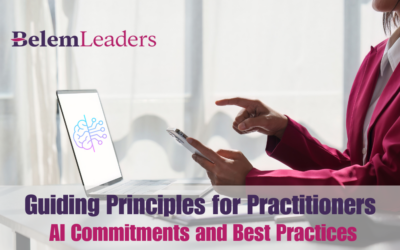I get it. You’re an eye on the prize, bottom-line, get the job done type of leader. But the reality is, leadership is as much heart as it is head. When leaders are one extreme or the other, the organization as a whole will suffer.
Leadership practices must be balanced. Knowing your people’s wants, needs, and desires, not just in Covid times, but all times is required. Unfortunately, what matters to your people often goes unheard, noticed, or felt.
If your ego is getting in the way of demonstrating the essential soft skill, empathy, now is the time for correction.
Empathy has been called the “secret sauce,” which gives the typically hardcore, goal-driven leader the ability to step into their people’s needs, wants, and desires. Exhibiting empathy builds commitment. When your people know how much you care, they will continually show up as a committed partner and bring their best.
We All Have Empathy!
I have to admit, on the CliftonStrengths assessment, the strength theme Empathy is not in my Top 5. Meaning, I don’t naturally lead with Empathy. In fact, empathy isn’t even in my Top 29!
Sound the alarm…this crucial leadership skill comes in at number 30 out of my 34 strength themes!
When I initially looked at my strengths report, I was surprised. Knowing that I didn’t have strength in this area bothered me until I understood how these superpowers work.
Those who rank high in the Empathy theme have an inherent sense of the emotions of others. According to Gallup, only 18% of the 20+ million people who have taken the CliftonStrengths assessment have Empathy land in their Top 5 [and it’s okay!].
The Top 5-10 strength themes are the sweet spot that leaders operate in most. It makes sense that not everyone operates in the Empathy strengths zone based on the premise that we are all unique and masterfully crafted.
This means that yes, even if you don’t operate with empathy in your dominant talent themes, you can empathize and demonstrate understanding. It just takes a conscious effort to bring this soft skill to the forefront.
Are you giving people what they need? How do you know?
On a recent Korn Ferry webinar, 54% of the people on the call said that Covid-19 impacted the need to experience empathy and trust. The most significant adjustment to foster empathy is leader capabilities.
When leaders embrace empathy, they see and hear their people—tuning in to the needs of all stakeholders.
How are you making an effort to connect on a broader and more profound level than the superficial conversations that are typical in our workplace?
Quick Tips
Here are 3 quick tips for strengthening your empathy:
Lean in.
When leaders cultivate curiosity through conversation, they increase the likelihood of connecting with others.
- When was the last time you had a meaningful conversation with your stakeholders?
- Were you fully tuned in, listening to what’s being said, but more importantly, what’s not being said?
- What did your questions and responses relay to the other person?
- Did your words carry understanding, compassion, and grace?
- Did you leave the conversation knowing and having a better understanding of the other person’s perspective than before?
Sit in discomfort.
Empathy must cross barriers. Regardless of heritage, religion, or gender, leaders are called to embrace diversity. The next time differences are present ask yourself:
- Are you willing to engage in conversation with an open mind and heart?
- What preconceived assumptions bubble up that must be acknowledged and tempered?
- How will you create a warm, open environment to engage?
- How can you position yourself to sit in discomfort and still generate a mutually agreeable outcome?
- What words, actions, body language, can you exhibit to break down barriers?
Make a difference.
Now that you’ve had meaningful conversations, addressed barriers, and elevated your relationship by demonstrating empathy, it’s time to make a difference. Consider:
- What can’t you unknow now that you’ve made a heart-connection?
- What is a “next step” to improve the overall relationship and the individual needs of your people?
- How will you extend yourself past the initial inquiry conversation?
Your Empathy Challenge
I may not lead with empathy every day, but I have done self-work to increase my awareness and recognize others’ feelings and emotions. When leaders become self-aware, they can make adjustments. When these adjustments are made, leaders can honor the people in their charge by being present. By being present, they bring a willingness to listen deeply and respond to others in a meaningful way, especially when they need you, the leader, most.
Empathy challenge: Do a heart check then reach out to one person and make a conscious connection. Lean in, listen, respond, reflect.
Ready to take CliftonStrengths and/or the Emotional Intelligence assessment?
Belem is here to help!
Be sure to tune in to our podcast CONVERSATIONS For Leaders & Teams on Apple Podcast, Spotify, or your favorite listening platform!
Click here to purchase Dr. Whelan’s book, Leadership Excellence By Design: Strategies For Sustainability & Strength on Amazon! 





0 Comments